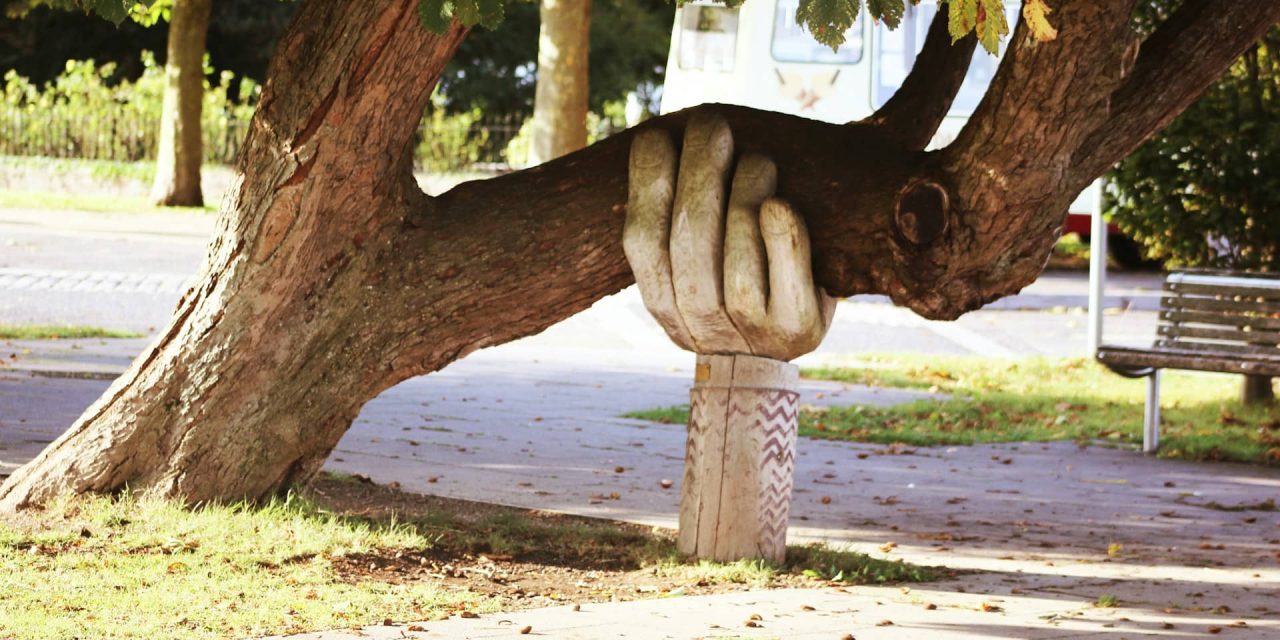Do you want to feel less helpless midst global crises? Discover 10 actionable tips to transform helplessness into positive change. Learn how to raise awareness, support ethical practices, volunteer, and more to make a meaningful impact and build a better world.
Estimated reading time: 7 minutes
The last months were especially challenging for me as a highly sensitive person. The collective energy feels overwhelming. Last weekend, this overwhelm seemed to increase within me with the news saturated by frustrations about discrimination, the Israel-Gaza conflict, the situation in Congo, and various other global issues. When I came across the website Counting the Kids, something happened within me. I felt incredibly helpless and intensely sad. As a single individual, this helplessness can be overwhelming, especially for those of us who are highly sensitive empaths and have a strong desire to do good and help others.
At the same time, I felt incredibly privileged to be in the Netherlands, to have a safe home, to walk the streets safely, to sleep through the night without fear, and to have dinner on the table. This privilege also brought an overwhelming sense of guilt, knowing that many people do not share these same comforts. Watching videos on social media about the hardships in different parts of the world only intensified this feeling of helplessness. I began to wonder what I could do to help, to raise awareness, and to support others, as well as to help myself cope with these emotions.
This realization led me to write this blog. I have a platform to spread awareness and share what we can do to support those in need. This blog is not only a way to help others but also a form of research for myself, as I seek ways to contribute positively.
In this blog, you will find 7 tips on what you can do as an individual when you feel helpless about global issues. I hope these tips help you as much as they have helped me. If you’re struggling mentally due to these overwhelming feelings, remember to ground your energy regularly. Meditate, regulate your nervous system, and focus on self-care. If you can’t manage on your own, don’t hesitate to seek help from a professional to improve your mental health. For those looking to actively contribute to good causes, here are my 7 tips for you.
Here’s What You’ll Discover:
1. Spread the Word on Your Own Socials and Platforms
If you want to feel less helpless, try to avoid being silent amidst a crisis. Use your social media and other platforms to share information about global issues and ways to help. This helps raise awareness and can spark conversations that lead to action. When more people understand what’s happening, they can put pressure on leaders and decision-makers to implement positive changes. Therefore, sharing verified news articles, infographics, and personal insights can educate your audience and encourage them to get involved. Remember, even a single post can reach thousands and inspire someone to take action.
Here are ways in which you can spread the word:
- Reshare posts from others talking about the issue;
- Create own videos with your thoughts on the matter;
- Respond to content from others, pushing it further in the algorithm.
2. Donate Money to Charities That Support a Better World
If you can, contribute financially to organizations making a difference. At HiSensitives, we regularly donate to One Tree Planted, which supports reforestation efforts. Personally, I am now also looking into donating to charities that help people in crisis, such as refugees or those affected by natural disasters. This can provide immediate relief and long-term support. Also, knowing where your money goes can alleviate feelings of helplessness and ensure your contributions have a meaningful impact on somebody else’s life. Therefore, research and choose reputable causes that align with your values to maximize the effectiveness of your donations.
Here are charities you may want to look into:
3. Volunteer Your Time and Skills
Volunteering can be incredibly fulfilling and impactful and help you feel less helpless. Offer your time and skills to local shelters, food banks, or international organizations. Whether you’re teaching a class, serving meals, or providing administrative support, your efforts help those in need. Volunteering not only aids the community but also gives you a sense of purpose and connection. It’s a hands-on way to contribute to positive change and understand the challenges faced by others. Also, many organizations offer flexible volunteer opportunities, making it easier to fit into your schedule.
Here are ways to find places to volunteer:
- Find local animal shelters or rescues at Petfinder;
- Discover local food banks at Feeding America;
- Find ways to clean up the environment at Clean up the world.
4. Support Local Businesses and Fair-Trade Products
Purchasing from local businesses and fair-trade organizations supports ethical practices and sustainable development. Local businesses often invest back into the community, creating jobs and fostering economic growth. Moreover, fair-trade products ensure that workers receive fair wages and work in safe conditions, promoting social and economic justice. Therefore, by choosing to support these businesses, you help build a more equitable and sustainable global economy.
For instance, start small with these changes:
- Buy your veggies, fruits and eggs at your local farmer’s market;
- Buy clothing from small boutiques instead of big brands and fast fashion stores;
- Get takeout from local restaurants.

5. Advocate for Change
Use your voice to advocate for policy changes that address global issues when you want to feel less helpless. Write to your local representatives, sign petitions, and participate in peaceful protests to demand action on critical topics like climate change, human rights, and social justice. Advocacy can influence legislation and bring about systemic change. Educate yourself on the issues, join advocacy groups, and use your platforms to amplify these causes. Persistent and informed advocacy can lead to significant improvements in policies and practices.
6. Educate Yourself and Others
Staying informed about global issues is crucial for making effective contributions. Read books, watch documentaries, and follow reputable news sources to understand the complexities of various problems. Share this knowledge with others through discussions, social media, or community events. Education fosters empathy and motivates people to take action. It also enables you to debunk misinformation and spread accurate information. By becoming well-informed, you can inspire others to join the cause and collectively work towards solutions.
7. Practice Sustainable Living
Adopting eco-friendly habits helps reduce your environmental footprint. Simple actions like reducing waste, recycling, conserving energy, and using sustainable products can collectively make a big difference. Also, practice mindful consumption by buying less and choosing quality over quantity. Support renewable energy sources and reduce your use of single-use plastics. These changes not only benefit the planet but also promote a more sustainable lifestyle. Educate others about the importance of sustainability and encourage them to adopt similar practices.
Final Remarks
Feeling helpless in the face of global crises is a common experience, especially for highly sensitive individuals who deeply care about making a positive impact. However, by taking proactive steps, we can transform this helplessness into meaningful action. Remember, no action is too small, and together, we can create a more compassionate, equitable, and sustainable future. Let these tips inspire you to take action and make a difference in the world.
Disclaimer: In this article, we collaborated with AI while writing articles, meaning that we used it as a personal assistant to provide valuable information to our readers. The personal touch through stories and personal examples and the editing of the article have been performed by the author.








